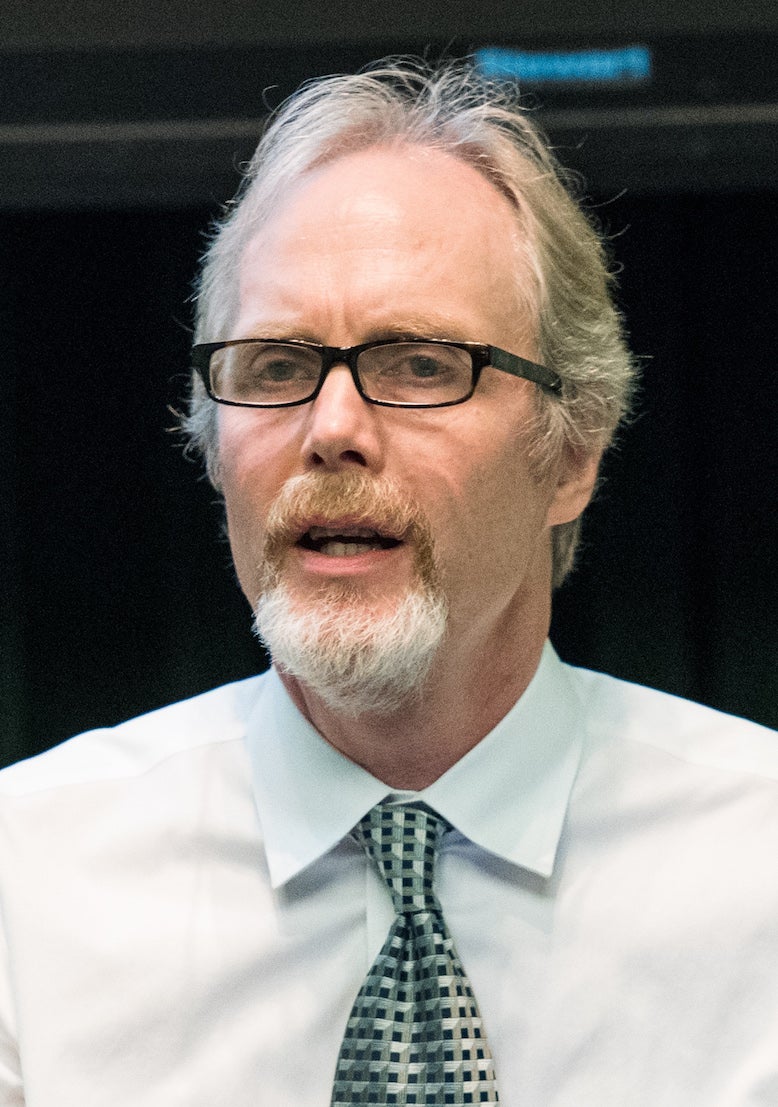
Mark Hunter
Earl E. Werner Distinguished University Professor
My research links population processes and ecosystem processes in terrestrial environments. I am particularly interested in feedback processes that operate between the population dynamics of herbivores and the quality of plants upon which they feed. I use a combination of approaches and techniques including field experiments, laboratory experiments, mathematical modeling, soil chemistry, plant chemistry, and stable isotope analysis. In addition to the development of theory, I apply what we learn to environmental issues including climate change, pest dynamics, and invasive species.
Recent Former Lab Members

Leslie Decker
Former Graduate Student
Graduated 2018. Currently a Post-Doc at Stanford
Leslie received a B.A. from Cornell University after completing a thesis project with Andre Kessler investigating the effects of herbivore-mediated changes in drought stress responses on plant fitness in the wild tobacco system. Following graduation, she worked with Monica Geber, studying the ecological and evolutionary limits of geographic range expansion of plants in the genus Clarkia. Leslie joined the lab in fall of 2013 to study the disease dynamics of the monarch butterfly and its protozoan parasite in the context of global change. She plans to explore how CO2-induced changes in milkweed food-plant chemistry may alter parasite transmission and virulence. For more information, visit Leslie's website.
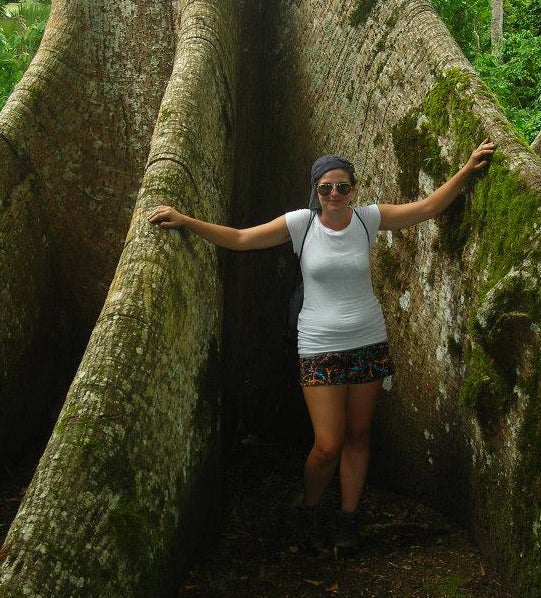
Holly Andrews
Former M.S. Student
Graduated 2015. Currently a doctoral student at U.C. Riverside
Holly received her Bachelor of Science degree in Botany and Environmental Science from Miami University in May 2013. During her undergraduate career, she worked with David Gorchov to characterize the dispersal methods and invasion patterns of invasive plants. She also studied salt marsh soil and plant dynamics under changing environmental conditions as part of a GRO undergraduate fellowship with the U.S. Environmental Protection Agency. Holly is currently interested in analyzing how water stress affects both plant defenses and plant-mycorrhizal interactions.
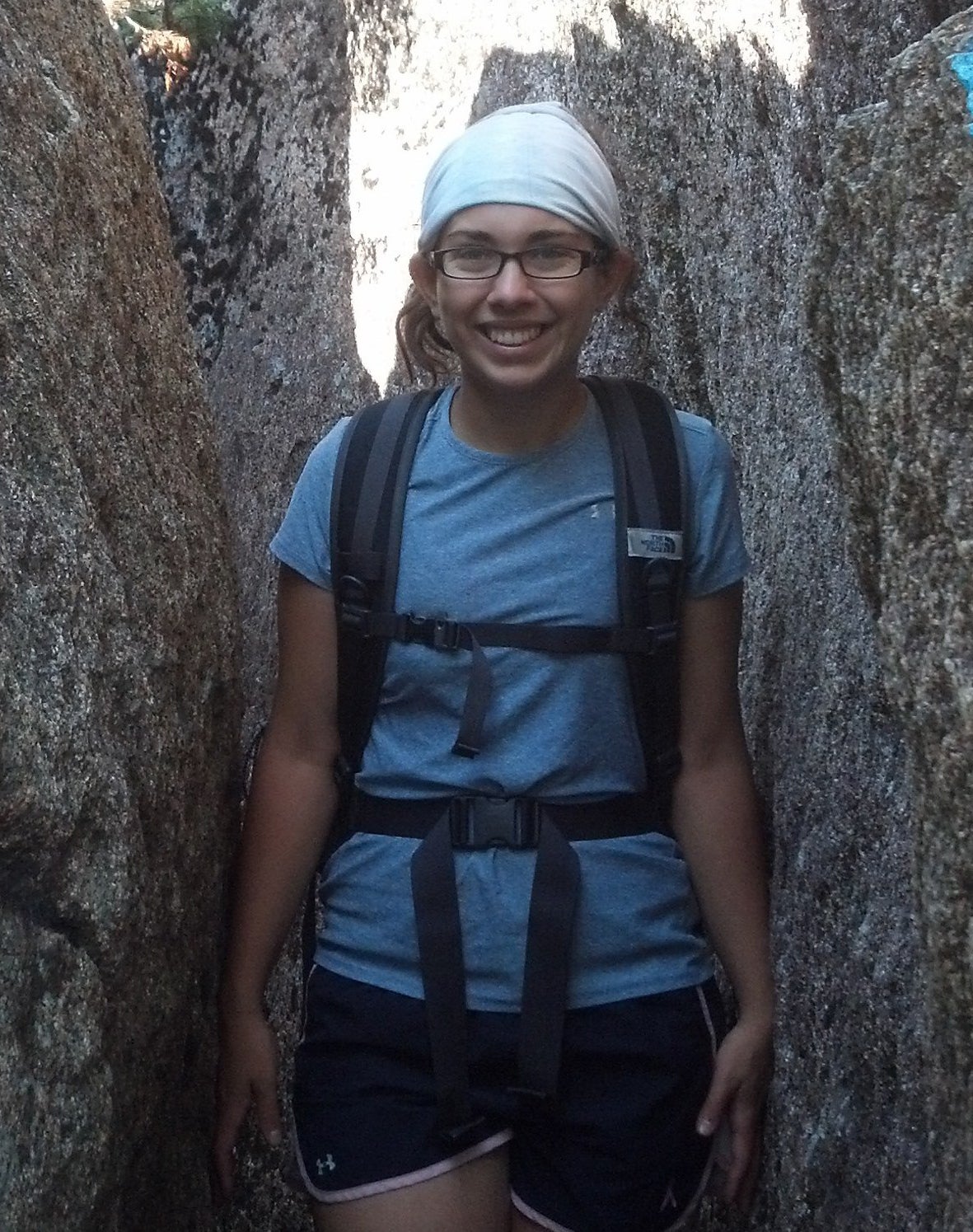
Amanda Meier
Former Ph.D. Student
Graduated 2018. Currently a Post-Doc at the University of Georgia
Amanda received her BS in biology and environmental science in 2013 from Muhlenberg College. She is broadly interested in the chemical ecology of multitrophic interactions and the implications of these interactions for community-scale dynamics. In addition, she is interested in how microbial communities, such as belowground symbioses with plants, may mediate these interactions. With her undergraduate advisor, Dr. Rich Niesenbaum, she examined how leaf age and light environment interact to affect carbon-based defenses and plant-insect interactions. Currently, she is investigating how mycorrhizal fungi may influence aboveground tritrophic interactions among milkweed (Asclepias) species, milkweed herbivores, and the herbivores’ natural enemies by altering plant nutrient quality and defenses. Conversely, she is examining how herbivores and herbivores’ natural enemies affect mycorrhizal fungi.
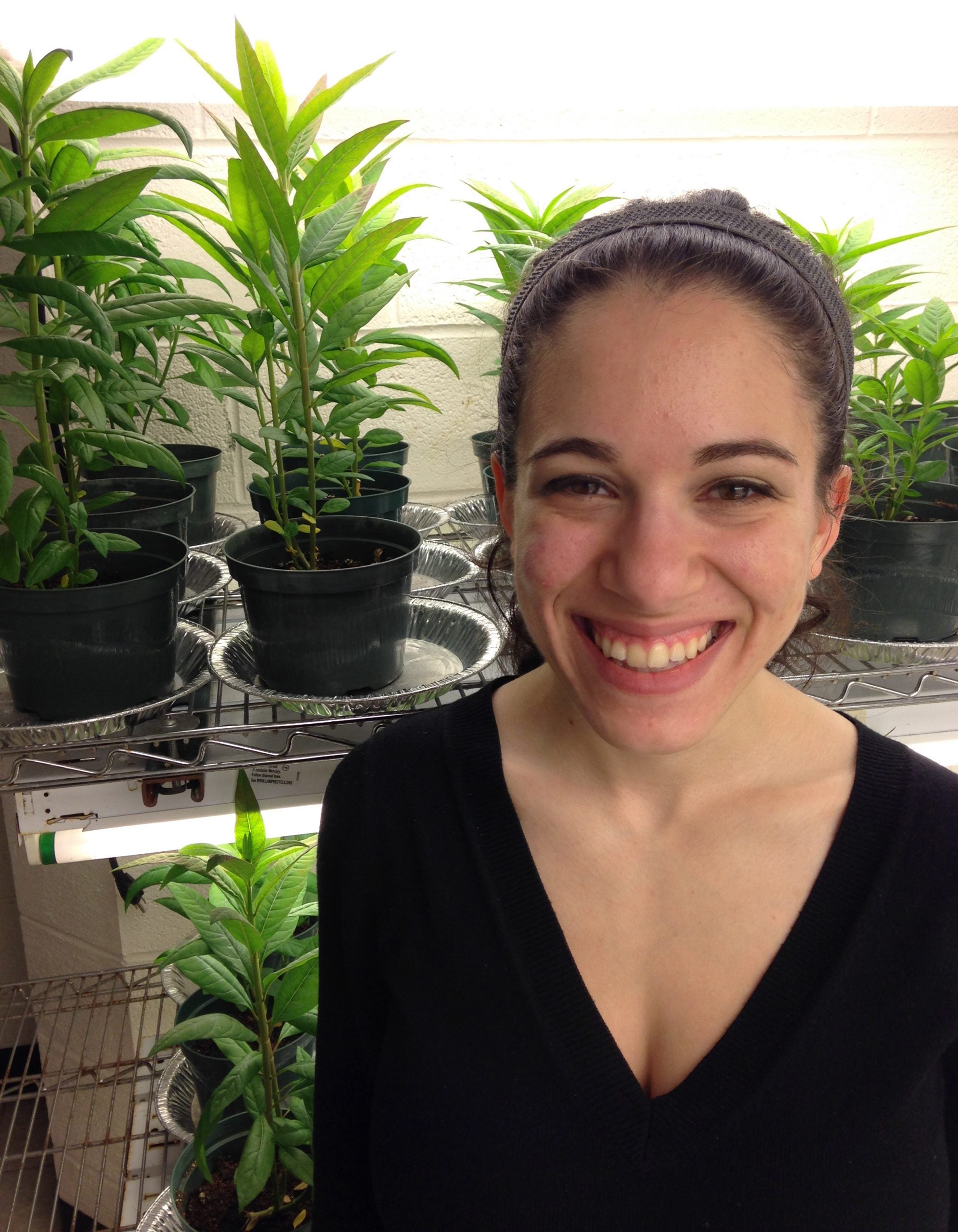
Hilary Streit
Former Lab Tech
Currently employed in the School for Environment & Sustainability, UM
Previously the lab tech in the Hunter lab. My responsibilities included the chemical analysis of samples, as well as caring for milkweed grown for experiments. I have a bachelors degree in Environmental Science from SUNY-ESF.
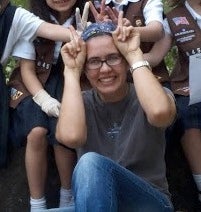
Katherine Crocker
Former Ph.D. Student
Graduated in 2018: Now a Post-Doc in Public Health at Columbia
I'm interested in how animals adapt to their environments over different time-scales, and particularly how hormones can help them to do this. My dissertation work focuses on a potential mechanism for transgenerational adaptation and on its implications over an intermediate time scale (between individual adaptation and the evolution of populations). You can read more about my research and teaching interests on my web page.
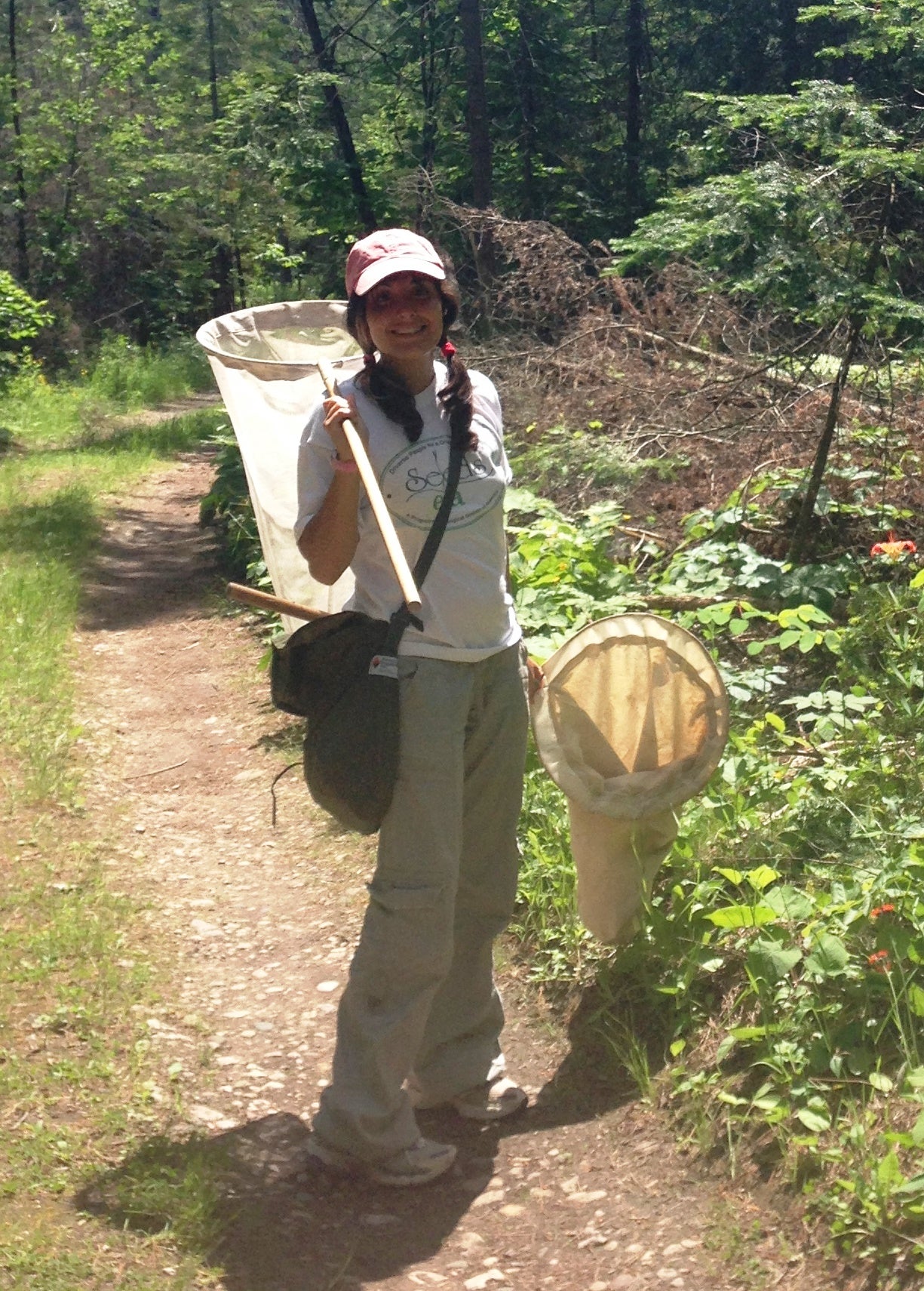
Johanna Nifosi
Former Master's Student
Graduated 2016: Johanna now works for the U.S. Geological Survey
Johanna completed her bachelor’s degree in Biology at Universidad Metropolitana in San Juan, Puerto Rico, in December 2012. As an undergraduate, she conducted research under Eva Davila’s mentorship, involving both pollination competition and dragonfly diversity in a natural reserve. She also participated in three REU experiences, working in different systems including salmon ecology in Idaho, biocontrol in Virginia and amphibian disease ecology in Colorado. After graduating, she worked as a research assistant on a project that assessed how nutrient enrichment affected a mangrove forest. She is currently interested in plant-insect interactions and conservation.
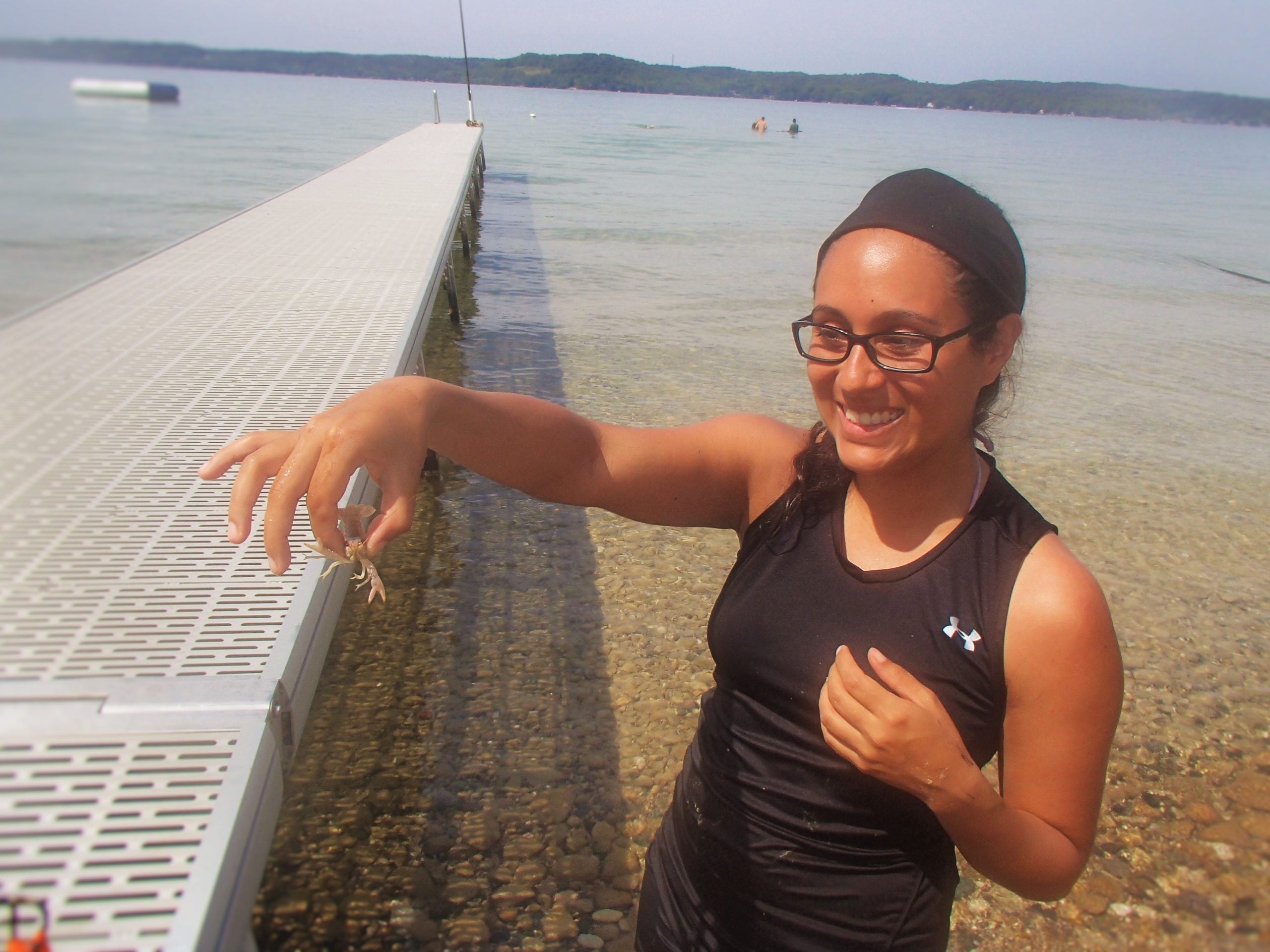
Kristel Sanchez
Former Master's Student
Graduated 2017: Kristel is now in the doctoral program at UM
I obtained my Bachelors degree in Biological Sciences from Florida International University. For my honors thesis, I studied how the density of coral transplants influenced herbivores in newly restored reef patches. During my free time I worked on another project that looked at the teratogenic effects of compounds found during harmful algal blooms using zebrafish embryos as a model organism.
As a native of the coast of the Ecuador, I have always been drawn to the water therefore I am interested in studying aquatic ecosystems. Broadly, I am interested in aquatic chemical ecology and community ecology. For my Master's thesis, I am studying resource ecology trade-offs in parasite-host interactions. Specifically, what are the fitness impacts of consuming nutritious algae vs toxic algae on parasitized Daphnia?
Some of my favorite hobbies include running outdoors, snorkeling, and kayaking.
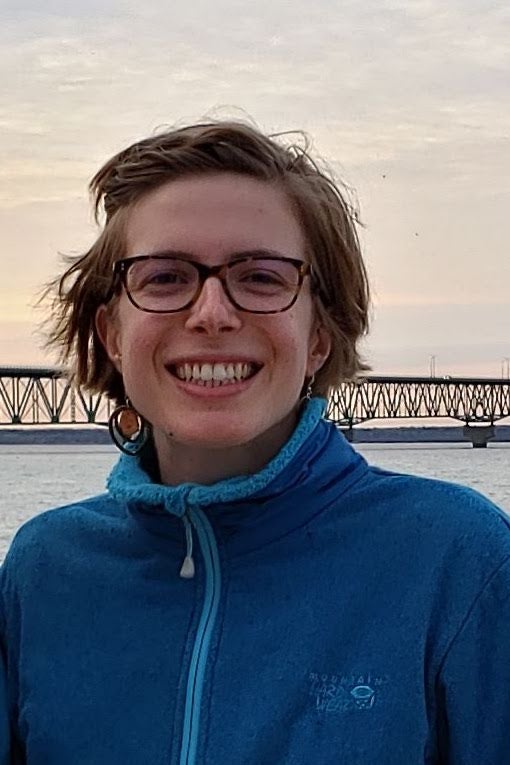
Abby Potts
Former Master's Student
Abby completed her undergraduate degree in Ecology and Evolutionary Biology at the University of Michigan, receiving the award for the best Honor's Thesis of 2018 form the UM Program in Biology. She stayed at Michigan to continue working on milkweeds and monarchs at the University of Michigan Biological Station. Abby completed her MS degree in spring of 2020, and works in Denver for the National Forest Foundation.
Full List of Former Graduate Students
- Rebecca E. Forkner. Variation in the impact and diversity of predaceous terrestrial arthropods as a function of resource heterogeneity, habitat structure, and trophic interactions. Ph.D. dissertation, graduated fall 1998.
- Barbara C. Reynolds. Canopy herbivory and soil processes in a temperate forest. Ph.D. dissertation, graduated spring 2000.
- Rebecca D. Klaper. The role of genotype and environment in the expression of phenolic defenses in turkey oak, Quercus laevis. Ph.D. dissertation, graduated spring 2000.
- Katherine D. Kearns. Chemical mediation of interactions between cyanobacteria and green algae in freshwater lakes. Ph.D. dissertation, graduated spring 2000.
- Alissa K. Salmore. Tradeoffs between defense and reproduction in Sanguinaria canadensis (Papaveraceae) along an altitudinal gradient. M.S. dissertation, graduated spring 2000.
- Michael D. Madritch. Is genetic diversity redundant for ecosystem function? Linking genotype and decomposition. Ph.D. dissertation, graduated fall 2002.
- Sandra E. Helms. The influences of plant quality and intraguild predation on Asclepias insects. M.S. dissertation, graduated fall 2005.
- Christopher J. Frost. Canopy herbivores and nutrient cycling in forest ecosystems. Ph.D. dissertation, graduated fall 2005.
- M.Carmen Hall. Effects of elevated concentrations of atmospheric carbon dioxide on insect herbivores and decomposition processes. Ph.D. dissertation, graduated fall 2005.
- Caralyn B. Zehnder. Influences of plant quality and maternal environment on the performance and population dynamics of a phloem-feeding insect herbivore. Ph.D. dissertation, graduated fall 2006.
- Becky Ball. Disentangling effects of litter diversity on ecosystem processes: non-random species loss, cross-system linkages, and ecosystem function. Ph.D. dissertation, graduated fall 2007.
- Kyle Wickings (with J. Ruberson). Arthropod biodiversity in a Georgia cotton agroecosystem: the role of Bt cotton, tillage, cover crops and red imported fire ants. Ph.D. dissertation, graduated fall 2007.
- Kristine Crous. Plant nitrogen partitioning during photosynthesis under elevated atmospheric carbon dioxide.Ph.D. dissertation, graduated fall 2008.
- Susan Kabat. Genetic structure of the common milkweed, Asclepias syriaca L. MS thesis, graduated spring 2010.
- Rachel Hessler. Induced dispersal strategies in plants attacked by herbivores. MS student, graduated spring 2010.
- Nathan Haan. Ecological restoration of roadsides: Examining ecological and organizational feasibility. MS thesis, graduated fall 2010.
- Rachel Vannette. The role of mycorrhizae in complex ecological interactions. Ph.D. dissertation, graduated summer 2011.
- Elizabeth Wason. The genetic basis of volatile defenses in plants. Ph.D. dissertation, graduated spring 2012.
- Leiling Tao. A tale of two elements. Effects of foliar nitrogen and phosphorus stoichiometry on plant-insect interactions. Ph. D. dissertation, graduated summer 2013.
- Huijie Gan (with D.R. Zak). Oribatid mite communities in soil: structure, function and response to global environmental change. Ph. D. dissertation, graduated fall 2013.
- Holly Andrews. Drought stress and milkweed defense in a changing world. MS thesis, graduated spring 2015.
- Johanna Nifosi. Effects of rising temperature on interactions between monarch butterflies and their parasites. MS thesis, graduated spring 2016.
- Kristel Sanchez. Toxins or medicines? Algal diets mediate parasitism in a freshwater host-parasite system. MS thesis graduated spring 2017.
- Katherine Crocker. The past is never dead: it isn’t even past: Maternal environment affects multiple generations of offspring via hormone provisioning. Ph. D. dissertation, graduated spring 2018.
- Leslie Decker. Plant quality mediates the response of disease to global environmental change. Ph. D. dissertation, graduated spring 2018.
- Amanda Meier. The influence of mutualisms below ground on multitrophic interactions above ground. Ph.D. dissertation, graduated summer 2018.
- Abigail Potts. Unraveling the roles of genotype and environment in the expression of plant defense phenotypes. MS thesis, graduated spring 2020.
